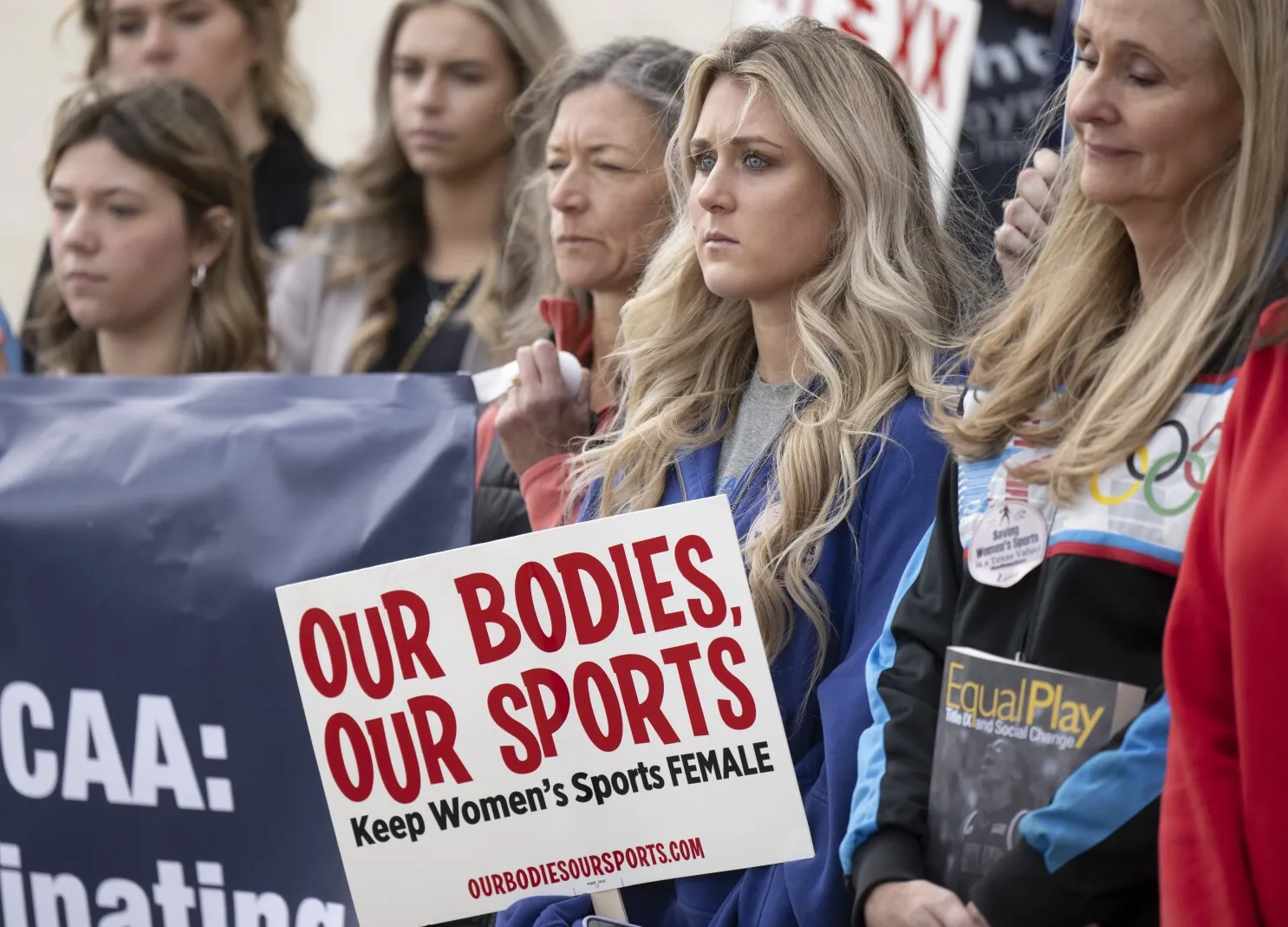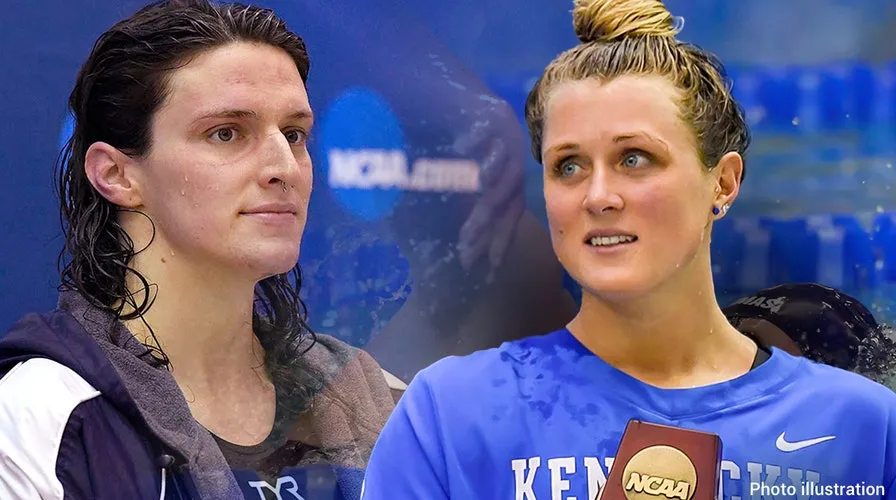In a surprising and contentious development in American college sports, the NCAA has made a decision that could significantly impact inclusion in women’s swimming.

Transgender swimmer Lia Thomas has been stripped of all her titles, and Riley Gaines, one of her main competitors, may regain the accolades lost to her in the pool.
The Beginning of the Controversy
Lia Thomas, formerly a swimmer at the University of Pennsylvania, became the center of intense debate over sports equity when she began competing in the women’s category after previously participating in the men’s division.
Despite adhering to NCAA rules and required hormonal levels, her dominant performance sparked criticism from athletes, coaches, and sports experts.
Conversely, Riley Gaines, a swimmer at the University of Kentucky, was a vocal opponent of Thomas’ participation in women’s competitions, arguing that biological differences provided an unfair advantage.
Gaines, who tied with Thomas in the 200-meter freestyle at the NCAA Championships, has been pivotal in the debate over equity in women’s sports.
The NCAA’s Decision and Its Impact
The NCAA’s decision to revoke Thomas’ medals follows pressure from various sports and legislative organizations advocating for equity in women’s competitions.
In an official statement, the NCAA explained that a rule review and reevaluation of past cases led to this determination.
“Our commitment to equity and inclusion in college sports requires us to constantly review our regulations. This decision reflects our effort to ensure that all athletes compete on equal terms,” said an NCAA spokesperson.

This measure opens the possibility of redistributing medals and titles to swimmers who finished behind Thomas in competitions, meaning Riley Gaines could be recognized as the true champion in several events where Thomas triumphed.
Mixed Reactions in the Sports Community
The decision has sparked divided reactions. Groups supporting equality in women’s sports have celebrated it as a step toward justice, while advocates for trans inclusion in sports view it as a setback for transgender athletes’ rights.
Riley Gaines expressed satisfaction via social media, stating that this decision marks an important precedent for protecting women’s sports: “For a long time, we were led to believe we should accept injustice. Today it’s proven that equity matters and women’s hard work must be respected.”
Conversely, organizations like Athlete Ally, which advocate for LGBTQ+ inclusion in sports, condemned the NCAA’s decision, arguing it sets a dangerous precedent of discrimination and exclusion.
“Lia Thomas competed under the rules established at the time. Revoking her medals now sends an alarming message to all trans athletes seeking a place in sport,” the organization stated.
The Future of College Swimming and NCAA’s New Rules
The Lia Thomas case has prompted the NCAA and other sports federations to review regulations regarding trans athletes’ participation in women’s competitions.
Recently, the International Swimming Federation (FINA) established stricter restrictions for trans athletes in women’s categories, allowing only those who transitioned before puberty.
The NCAA announced it would align its rules with FINA and the International Olympic Committee (IOC), potentially restricting future trans athletes’ access to women’s competitions.
Revoking Lia Thomas’ medals and possibly redistributing titles to athletes like Riley Gaines marks a crucial moment in the fight for equality in college sports.
While some celebrate this decision as just, others view it as discriminatory, potentially limiting trans athletes’ participation in the future.
Regardless of opinions, the debate over inclusion and equity in women’s sports continues. The NCAA has set a precedent that could redefine the rules for generations to come.
